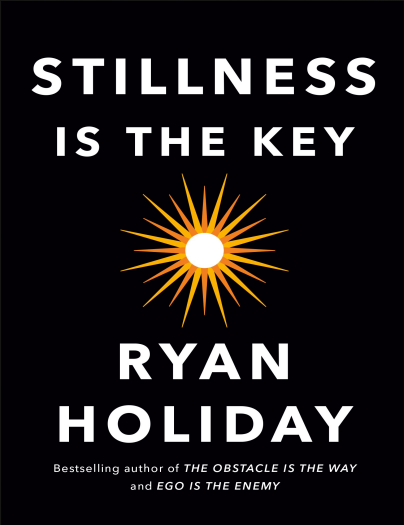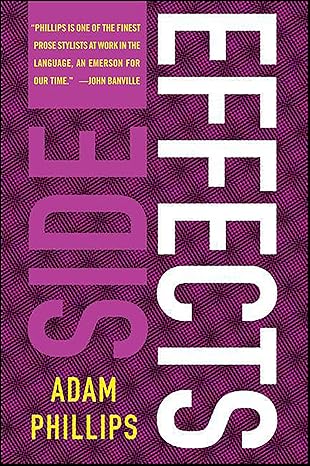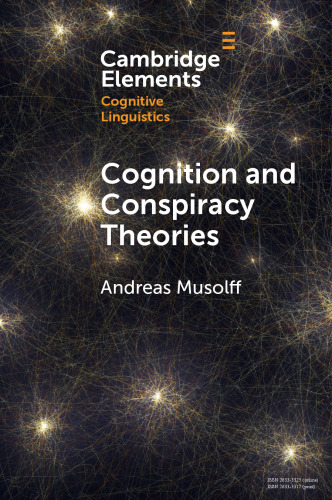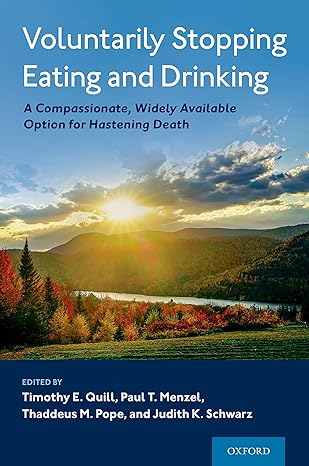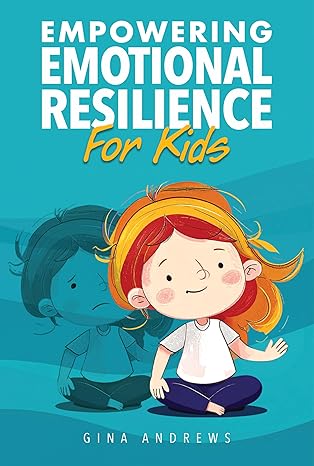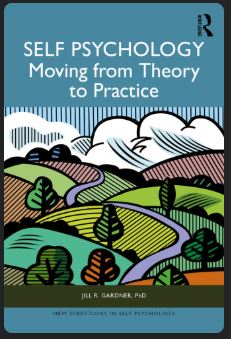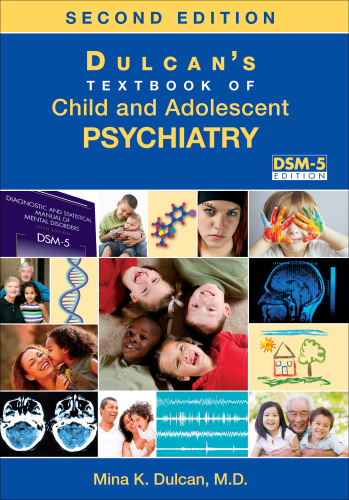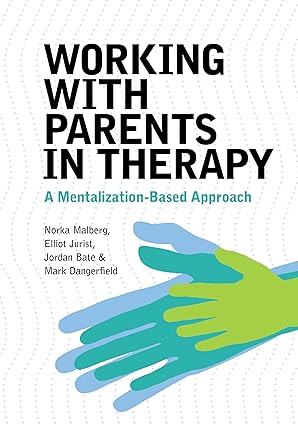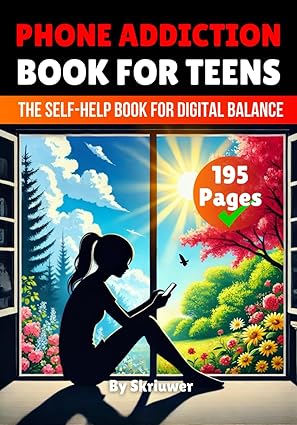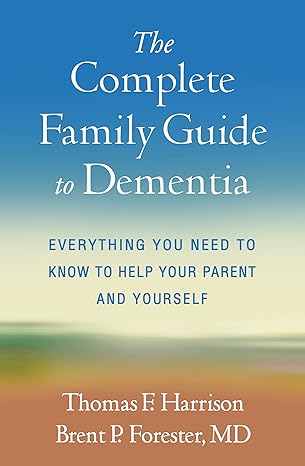The call to stillness comes quietly. The modern world does not. In addition to the clatter and chatter and intrigue and infighting that would be familiar to the citizens of Seneca’s time, we have car horns, stereos, cell phone alarms, social media notifications, chainsaws, airplanes.
Our personal and professional problems are equally overwhelming. Competitors muscle into our industry. Our desks pile high with papers and our inboxes overflow with messages. We are always reachable, which means that arguments and updates are never far away. The news bombards us with one crisis after another on every screen we own—of which there are many. The grind of work wears us down and seems to never stop. We are overfed and undernourished. Overstimulated, overscheduled, and lonely.
Who has the power to stop? Who has time to think? Is there anyone not affected by the din and dysfunctions of our time?
While the magnitude and urgency of our struggle is modern, it is rooted in a timeless problem. Indeed, history shows that the ability to cultivate quiet and quell the turmoil inside us, to slow the mind down, to understand our emotions, and to conquer our bodies has always been extremely difficult. “All of humanity’s problems,” Blaise Pascal said in 1654, “stem from man’s inability to sit quietly in a room alone.”
In evolution, distinct species—like birds and bats—have often evolved similar adaptations in order to survive. The same goes for the philosophical schools separated by vast oceans and distances. They developed unique paths to the same critical destination: The stillness required to become master of one’s own life. To survive and thrive in any and every environment, no matter how loud or busy.
Which is why this idea of stillness is not some soft New Age nonsense or the domain of monks and sages, but in fact desperately necessary to all of us, whether we’re running a hedge fund or playing in a Super Bowl, pioneering research in a new field or raising a family. It is an attainable path to enlightenment and excellence, greatness and happiness, performance as well as presence, for every kind of person.
Stillness is what aims the archer’s arrow. It inspires new ideas. It sharpens perspective and illuminates connections. It slows the ball down so that we might hit it. It generates a vision, helps us resist the passions of the mob, makes space for gratitude and wonder. Stillness allows us to persevere. To succeed. It is the key that unlocks the insights of genius, and allows us regular folks to understand them. The promise of this book is the location of that key . . . and a call not only for possessing stillness, but for radiating it outward like a star—like the sun—for a world that needs light more than ever.
The Key to Everything
In the early days of the American Civil War, there were a hundred competing plans for how to secure victory and whom to appoint to do it. From every general and for every battle there was an endless supply of criticism and dangerous passions—there was paranoia and fear, ego and arrogance, and very little in the way of hope.
There is a wonderful scene from those fraught first moments when Abraham Lincoln addressed a group of generals and politicians in his office at the White House. Most people at that time believed the war could only be won through enormous, decisively bloody battles in the country’s biggest cities, like Richmond and New Orleans and even, potentially, Washington, D.C.
Lincoln, a man who taught himself military strategy by poring over books he checked out from the Library of Congress, laid out a map across a big table and pointed instead to Vicksburg, Mississippi, a little city deep in Southern territory. It was a fortified town high on the bluffs of the Mississippi River, held by the toughest rebel troops. Not only did it control navigation of that important waterway, but it was a juncture for a number of other important tributaries, as well as rail lines that supplied Confederate armies and enormous slave plantations across the South.
“Vicksburg is the key,” he told the crowd with the certainty of a man who had studied a matter so intensely that he could express it in the simplest of terms. “The war can never be brought to a close until that key is in our pocket.”
As it happened, Lincoln turned out to be exactly right. It would take years, it would take incredible equanimity and patience, as well as ferocious commitment to his cause, but the strategy laid out in that room was what won the war and ended slavery in America forever. Every other important victory in the Civil War—from Gettysburg to Sherman’s March to the Sea to Lee’s surrender—was made possible because at Lincoln’s instruction Ulysses S. Grant laid siege to Vicksburg in 1863, and by taking the city split the South in two and gained control of that important waterway. In his reflective, intuitive manner, without being rushed or distracted, Lincoln had seen (and held fast to) what his own advisors, and even his enemy, had missed. Because he possessed the key that unlocked victory from the rancor and folly of all those early competing plans. In our own lives, we face a seemingly equal number of problems and are pulled in countless directions by competing priorities and beliefs. In the way of everything we hope to accomplish, personally and professionally, sit obstacles and enemies. Martin Luther King Jr. observed that there was a violent civil war raging within each and every person—between our good and bad impulses, between our ambitions and our principles, between what we can be and how hard it is to actually get there. In those battles, in that war, stillness is the river and the railroad junction through which so much depends. It is the key . . . To thinking clearly. To seeing the whole chessboard. To making tough decisions. To managing our emotions. To identifying the right goals. To handling high-pressure situations. To maintaining relationships. To building good habits. To being productive. To physical excellence. To feeling fulfilled. To capturing moments of laughter and joy. Stillness is the key to, well, just about everything.
To being a better parent, a better artist, a better investor, a better athlete, a better scientist, a better human being. To unlocking all that we are capable of in this life. This Stillness Can Be Yours Anyone who has concentrated so deeply that a flash of insight or inspiration suddenly visited them knows stillness. Anyone who has given their best to something, felt pride of completion, of knowing they left absolutely nothing in reserve—that’s stillness. Anyone who has stepped forward with the eyes of the crowd upon them and then poured all their training into a single moment of performance—that’s stillness, even if it involves active movement. Anyone who has spent time with that special, wise person, and witnessed them solve in two seconds the problem that had vexed us for months—stillness. Anyone who has walked out alone on a quiet street at night as the snow fell, and watched as the light fell softly on that snow and is warmed by the contentment of being alive—that too is stillness. Staring at the blank page in front of us and watching as the words pour out in perfect prose, at a loss for where they came from; standing on fine white sand, looking out at the ocean, or really any part of nature, and feeling like part of something bigger than oneself; a quiet evening with a loved one; the satisfaction of having done a good turn for another person; sitting, alone with our thoughts, and seizing for the first time the ability to think about them as we were thinking them. Stillness. Sure, there is a certain ineffableness to what we’re talking about, to articulating the stillness that the poet Rainer Maria Rilke described as “full, complete” where “all the random and approximate were muted.” “Although we speak of attaining the dao,” Lao Tzu once said, “there is really nothing to obtain.” Or to borrow a master’s reply to a student who asked where he might find Zen: “You are seeking for an ox while you are yourself on it.” You have tasted stillness before.
You have felt it in your soul. And you want more of it. You need more of it. Which is why the aim of this book is simply to show how to uncover and draw upon the stillness we already possess. It’s about the cultivation of and the connection to that powerful force given to us at birth, the one that has atrophied in our modern, busy lives. This book is an attempt to answer the pressing question of our time: If the quiet moments are the best moments, and if so many wise, virtuous people have sung their praises, why are they so rare? Well, the answer is that while we may naturally possess stillness, accessing it is not easy. One must really listen to hear it speaking to us. And answering the call requires stamina and mastery.
“To hold the mind still is an enormous discipline,” the late comedian Garry Shandling reminded himself in his journal as he struggled to manage fame and fortune and health problems, “one which must be faced with the greatest commitment of your life.” The pages that follow tell the stories and strategies of men and women who were just like you, who struggled as you struggle amid the noise and responsibilities of life, but managed to succeed in finding and harnessing stillness. You will hear stories of the triumphs and trials of John F. Kennedy and Fred Rogers, Anne Frank and Queen Victoria. There will be stories about Jesus and Tiger Woods, Socrates, Napoleon, the composer John Cage, Sadaharu Oh, Rosanne Cash, Dorothy Day, Buddha, Leonardo da Vinci, Socrates, and Marcus Aurelius. We will also draw on poetry and novels, philosophical texts and scientific research. We will raid every school and every era we can to find strategies to help us direct our thoughts, process our emotions, and master our bodies. So we can do less . . . and do more. Accomplish more but need it less.
Feel better and be better at the same time. To achieve stillness, we’ll need to focus on three domains, the timeless trinity of mind, body, soul—the head, the heart, the flesh. In each domain, we will seek to reduce the disturbances and perturbations that make stillness impossible. To cease to be at war with the world and within ourselves, and to establish a lasting inner and outer peace instead. You know that is what you want—and what you deserve. That’s why you picked up this book. So let us answer the call together. Let us find—let us lock into— the stillness that we seek.
چکیده فارسی
ندای سکون بی سر و صدا می آید. دنیای مدرن اینطور نیست. علاوه بر تلق، پچ پچ و دسیسه و دعوا که برای شهروندان زمان سنکا آشنا بود، ما بوق ماشین، استریو، زنگ تلفن همراه، اعلان های رسانه های اجتماعی، اره برقی، هواپیماها را داریم.
مشکلات شخصی و حرفه ای ما به یک اندازه طاقت فرسا هستند. رقبا وارد صنعت ما می شوند. میزهای ما مملو از کاغذ است و صندوق ورودی ما مملو از پیام است. ما همیشه در دسترس هستیم، به این معنی که استدلال ها و به روز رسانی ها هرگز دور از دسترس نیستند. اخبار در هر صفحهای که در اختیار داریم ما را با بحرانها یکی پس از دیگری بمباران میکند - که تعداد زیادی از آنها وجود دارد. سختی کار ما را خسته می کند و به نظر می رسد هرگز متوقف نمی شود. ما بیش از حد غذا خورده ایم و کم غذا هستیم. بیش از حد تحریک شده، بیش از حد برنامه ریزی شده، و تنها.
چه کسی قدرت توقف دارد؟ چه کسی برای فکر کردن وقت دارد؟ آیا کسی هست که تحت تأثیر هیاهو و ناکارآمدی های زمانه ما قرار نگیرد؟
در حالی که بزرگی و فوریت مبارزه ما مدرن است، اما ریشه در یک مشکل بیزمان دارد. در واقع، تاریخ نشان می دهد که توانایی پرورش سکوت و فرونشاندن آشفتگی درونمان، کند کردن ذهن، درک احساسات و تسخیر بدنمان همیشه بسیار دشوار بوده است. بلز پاسکال در سال 1654 گفت: "تمام مشکلات بشریت از ناتوانی انسان در نشستن آرام در اتاقی به تنهایی ناشی می شود."
در تکامل، گونههای متمایز - مانند پرندگان و خفاشها - اغلب سازگاریهای مشابهی را برای بقا ایجاد کردهاند. همین امر در مورد مکاتب فلسفی که با اقیانوس ها و فواصل وسیع از هم جدا شده اند، صدق می کند. آنها مسیرهای منحصر به فردی را برای رسیدن به همان مقصد حیاتی ایجاد کردند: سکون مورد نیاز برای تبدیل شدن به استاد زندگی خود. برای زنده ماندن و پیشرفت در هر محیطی، مهم نیست که چقدر پر سر و صدا یا شلوغ است.
به همین دلیل است که این ایده سکون یک مزخرف نرم عصر جدید یا قلمرو راهبان و حکیمان نیست، بلکه در واقع برای همه ما ضروری است، چه در حال اداره یک صندوق سرمایه گذاری باشیم و چه در حال بازی در یک سوپر باول، تحقیق پیشگام در یک زمینه جدید یا تشکیل خانواده. این مسیری دست یافتنی به سوی روشنایی و تعالی، عظمت و سعادت، عملکرد و همچنین حضور، برای هر نوع آدمی است.
سکوت همان چیزی است که تیر کماندار را هدف قرار می دهد. این الهام بخش ایده های جدید است. این چشم انداز را واضح می کند و اتصالات را روشن می کند. سرعت توپ را کم می کند تا شاید به آن ضربه بزنیم. این یک بینش ایجاد می کند، به ما کمک می کند در برابر احساسات اوباش مقاومت کنیم، فضایی برای قدردانی و شگفتی ایجاد می کند. سکون به ما اجازه می دهد که استقامت کنیم. موفق شدن. این کلیدی است که بینش های نابغه را باز می کند و به ما مردم عادی اجازه می دهد آنها را درک کنیم. وعده این کتاب محل آن کلید است. . . و فراخوانی نه تنها برای داشتن سکون، بلکه برای تابش آن به بیرون مانند یک ستاره - مانند خورشید - برای جهانی که بیش از همیشه به نور نیاز دارد.
کلید همه چیز
در روزهای اولیه جنگ داخلی آمریکا، صدها طرح رقابتی برای اینکه چگونه پیروزی را تضمین کنیم و چه کسی را برای انجام آن منصوب کنیم وجود داشت. از هر ژنرال و برای هر نبرد، حجم بی پایانی از انتقاد و احساسات خطرناک وجود داشت - پارانویا و ترس، منیت و تکبر وجود داشت، و امید بسیار کمی بود.
صحنه فوقالعادهای از اولین لحظههای پرتنش وجود دارد که آبراهام لینکلن در دفترش در کاخ سفید برای گروهی از ژنرالها و سیاستمداران سخنرانی کرد. اکثر مردم در آن زمان بر این باور بودند که جنگ فقط از طریق نبردهای خونین عظیم و قاطع در بزرگترین شهرهای کشور مانند ریچموند و نیواورلئان و حتی به طور بالقوه واشنگتن دی سی به دست می آید.
لینکلن، مردی که با نگاه کردن به کتابهایی که از کتابخانه کنگره چک کرده بود، استراتژی نظامی را به خود آموخت، نقشهای را روی یک میز بزرگ گذاشت و به جای آن به ویکسبورگ، میسیسیپی، شهری کوچک در اعماق قلمرو جنوبی اشاره کرد. این یک شهر مستحکم بر فراز بلوف های رودخانه می سی سی پی بود که توسط سرسخت ترین سربازان شورشی کنترل می شد. نه تنها ناوبری آن آبراه مهم را کنترل می کرد، بلکه نقطه اتصالی برای تعدادی از شاخه های مهم دیگر، و همچنین خطوط راه آهنی بود که ارتش کنفدراسیون و مزارع بردگان عظیم را در سراسر جنوب تامین می کرد.
او با اطمینان به مردم گفت: "ویکسبورگ کلید است." «تا زمانی که آن کلید در جیب ما نباشد، هرگز نمی توان جنگ را به پایان رساند.»
همانطور که اتفاق افتاد، لینکلن دقیقاً درست میگوید. سالها طول میکشد، متانت و شکیبایی باورنکردنی و همچنین تعهد وحشیانه به آرمان او میطلبد، اما راهبردی که در آن اتاق ترسیم شد چیزی بود که جنگ را پیروز کرد و بردگی را در آمریکا برای همیشه پایان داد. هر پیروزی مهم دیگری در جنگ داخلی - از گتیزبورگ تا راهپیمایی شرمن به دریا و تسلیم لی - ممکن شد زیرا به دستور لینکلن، اولیس اس. گرانت در سال 1863 ویکسبرگ را محاصره کرد و با گرفتن شهر، جنوب را به دو نیم کرد و کنترل آن آبراه مهم را به دست آورد. لینکلن به شیوهای شهودی و تأملآمیز خود، بدون عجله یا حواسپرتی، آنچه را که مشاوران خودش و حتی دشمنش از دست داده بودند، دیده بود (و محکم به آن چسبیده بود). زیرا او کلیدی را در اختیار داشت که قفل پیروزی را از کینه و حماقت تمام آن نقشه های رقابتی اولیه باز می کرد. در زندگی خودمان با تعداد به ظاهر مساوی مشکلات روبرو هستیم و با اولویت ها و باورهای رقابتی به جهات بی شماری کشیده می شویم. در مسیر همه چیزهایی که به صورت شخصی و حرفه ای امیدواریم به انجام برسانیم، موانع و دشمنان را بنشینیم. مارتین لوتر کینگ جونیور مشاهده کرد که یک جنگ داخلی خشونتآمیز در درون هر فرد در جریان است - بین انگیزههای خوب و بد ما، بین جاهطلبیها و اصولمان، بین آنچه میتوانیم باشیم و اینکه واقعاً رسیدن به آن چقدر سخت است. در آن نبردها، در آن جنگ، سکون رودخانه و محل اتصال راه آهن است که خیلی چیزها به آن بستگی دارد. کلید است. . . به روشن فکر کردن برای دیدن کل صفحه شطرنج. برای گرفتن تصمیمات سخت برای مدیریت احساساتمان برای شناسایی اهداف درست برای مدیریت شرایط پرفشار برای حفظ روابط برای ایجاد عادات خوب برای مولد بودن به تعالی فیزیکی. برای احساس رضایت. برای ثبت لحظات خنده و شادی. سکون کلید تقریباً همه چیز است.
پدر و مادر بهتر، هنرمند بهتر، سرمایه گذار بهتر، ورزشکار بهتر، دانشمند بهتر، انسان بهتر بودن. برای باز کردن همه چیزهایی که در این زندگی قادر به انجامشان هستیم. این سکون می تواند مال شما باشد هرکسی که آنقدر عمیق تمرکز کرده باشد که ناگهان بصیرت یا الهام به او سر بزند، سکون را می داند. هرکسی که تمام تلاش خود را به چیزی داده است، احساس غرور میکند از اینکه میدانست مطلقاً چیزی را ذخیره نکرده است - این سکون است. هر کسی که با چشمان جمعیت به جلو قدم گذاشته است و سپس تمام تمرینات خود را در یک لحظه اجرا گذاشته است - این سکون است، حتی اگر شامل حرکت فعال باشد. هرکسی که با آن شخص خاص و عاقل وقت گذرانده باشد و شاهد بوده که آنها در عرض دو ثانیه مشکلی را که ماهها ما را آزار میداد حل میکنند - سکون. هرکسی که شب هنگام با باریدن برف به تنهایی از خیابانی آرام بیرون رفته باشد و نظاره گر نور ملایمی بر آن برف بوده و از رضایت از زنده بودن گرم شده است، این نیز سکون است. خیره شدن به صفحه خالی روبرویمان و تماشای این که کلمات با نثری عالی سرازیر می شوند، در غم اینکه از کجا آمده اند. ایستادن روی شنهای سفید ریز، نگاه کردن به اقیانوس، یا در واقع هر بخشی از طبیعت، و احساس بخشی از چیزی بزرگتر از خود؛ یک شب آرام با یک عزیز؛ رضایت از انجام یک نوبت خوب برای شخص دیگر؛ نشسته، تنها با افکارمان، و برای اولین بار از توانایی فکر کردن در مورد آنها همانطور که ما به آنها فکر می کنیم استفاده می کنیم. سکون. مطمئناً چیزی که ما در مورد آن صحبت می کنیم، بیان ناپذیری خاصی وجود دارد، بیان سکون که راینر ماریا ریلکه شاعر به عنوان «کامل، کامل» توصیف می کند، جایی که «همه موارد تصادفی و تقریبی خاموش بودند». لائو تزو یک بار گفت: «اگرچه ما از دستیابی به دائو صحبت می کنیم، واقعاً چیزی برای به دست آوردن وجود ندارد.» یا برای قرض گرفتن پاسخ استاد به دانش آموزی که پرسیده بود ذن را از کجا بیابد: "شما به دنبال یک گاو هستید در حالی که خودتان در آن هستید." قبلاً طعم سکون را چشیده اید.
شما آن را در روح خود احساس کرده اید. و شما بیشتر از آن می خواهید. شما نیاز بیشتری به آن دارید. به همین دلیل است که هدف این کتاب صرفاً نشان دادن چگونگی کشف و استفاده از سکون است که در حال حاضر داریم. این در مورد پرورش و ارتباط با آن نیروی قدرتمندی است که در بدو تولد به ما داده شده است، نیرویی که در زندگی مدرن و پرمشغله ما از بین رفته است. این کتاب تلاشی است برای پاسخگویی به این سوال مبرم زمانه ما: اگر لحظات آرام بهترین لحظات هستند و اگر این همه انسان عاقل و نیکوکار مدح و ثنای خود را سرودند، چرا اینقدر نادر هستند؟ خوب، پاسخ این است که اگرچه ممکن است به طور طبیعی دارای سکون باشیم، دسترسی به آن آسان نیست. برای شنیدن صحبت کردن با ما باید واقعاً گوش داد. و پاسخ دادن به تماس مستلزم استقامت و تسلط است.
"گاری شاندلینگ" کمدین فقید در ژورنال خود در حالی که برای مدیریت شهرت و ثروت و مشکلات سلامتی تلاش می کرد، به خود یادآوری کرد: "بی حرکت نگه داشتن ذهن یک رشته بسیار بزرگ است." " صفحاتی که در ادامه میآیند، داستانها و استراتژیهای مردان و زنانی را روایت میکنند که دقیقاً مانند شما بودند، که در حالی که شما در میان سر و صدا و مسئولیتهای زندگی مبارزه میکردید، تلاش کردند، اما موفق شدند سکون را بیابند و مهار کنند. داستان های پیروزی و محاکمه های جان اف کندی و فرد راجرز، آن فرانک و ملکه ویکتوریا را خواهید شنید. داستان هایی درباره عیسی و تایگر وودز، سقراط، ناپلئون، آهنگساز جان کیج، ساداهارو اوه، روزان کش، دوروتی دی، بودا، لئوناردو داوینچی، سقراط و مارکوس اورلیوس وجود خواهد داشت. ما همچنین از شعر و رمان، متون فلسفی و تحقیقات علمی استفاده خواهیم کرد. ما به هر مدرسه و هر دورهای که میتوانیم حمله خواهیم کرد تا راهبردهایی پیدا کنیم که به ما کمک کند افکارمان را هدایت کنیم، احساساتمان را پردازش کنیم و بر بدنمان تسلط پیدا کنیم. بنابراین ما می توانیم کمتر انجام دهیم. . . و بیشتر انجام دهید. کارهای بیشتری انجام دهید اما کمتر به آن نیاز دارید.
احساس بهتری داشته باشید و در عین حال بهتر باشید. برای رسیدن به سکون، باید بر سه حوزه تمرکز کنیم، تثلیث بیزمان ذهن، بدن، روح - سر، قلب، جسم. در هر حوزه، ما به دنبال کاهش اختلالات و آشفتگی هایی هستیم که سکون را غیرممکن می کنند. از جنگ با جهان و درون خود دست برداریم و به جای آن یک صلح درونی و بیرونی پایدار برقرار کنیم. میدانی که این همان چیزی است که میخواهی و لیاقتت را دارد. به همین دلیل این کتاب را انتخاب کردید. پس بیایید با هم به تماس پاسخ دهیم. بیایید سکونی را که به دنبال آن هستیم پیدا کنیم - اجازه دهید در آن قفل کنیم.
ادامه ...
بستن ...
